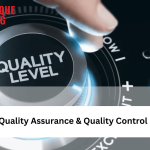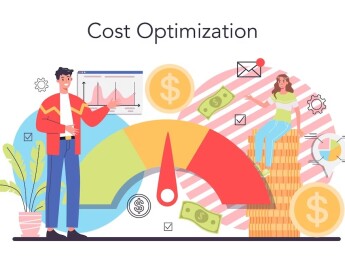Quality management in the ever-evolving healthcare industry is paramount as it directly impacts patient outcomes, organisational efficiency, and overall healthcare system effectiveness. Ensuring the delivery of high-quality care is not merely a regulatory requirement but a moral and ethical imperative. Effective quality management systems contribute to preventing medical errors, reducing adverse events, and enhancing patient safety. By implementing rigorous quality control measures, healthcare providers can instil confidence in patients, fostering trust in the care they receive.
Beyond its impact on patient care and operational efficiency, quality management is crucial in maintaining compliance with regulatory standards and accreditation requirements. Adherence to these standards is a legal obligation and a means to ensure that healthcare organisations consistently meet the criteria set out by authoritative bodies.
Process improvement is a cornerstone of healthcare quality management, and this course will explore various methodologies and frameworks to enhance efficiency and effectiveness within healthcare organisations. Participants will learn to identify bottlenecks, streamline workflows, and implement sustainable changes to optimise patient care delivery.
Upon completion of this course, participants will be able to:
- Understand the role that quality plays in patient safety.
- Develop highly effective improvement plans.
- Find the root cause of issues within a healthcare setting.
- Engage stakeholders in project plans to improve quality.
- Assess KPIs and understand the requirements for change.
- Collect the right kinds of data to make an impactful assessment.
- Understand regulatory concerns with JCI and ISO.
- Develop a key compliance program to monitor and improve quality scores.
This course is designed for anyone entering into the medical quality management field. It would be most beneficial for:
- Medical Administrators
- Medical Management Executives
- Quality Managers
- Project Managers
- Regulators
- Healthcare Professionals
- Auditors
- Risk Assessors
This course uses a variety of adult learning styles to aid full understanding and comprehension. Participants will be able to engage with experienced professionals in the field, drawing from their wealth of practical knowledge. The course will include interactive discussions, group activities, and case analyses to facilitate a collaborative learning environment.
By the end of the program, participants will emerge as well-rounded healthcare quality professionals, ready to contribute to patient safety advancements, drive process improvements, and ensure compliance with the highest standards in healthcare.
Day 5 of each course is reserved for a Q&A session, which may occur off-site. For 10-day courses, this also applies to day 10
Section 1: What Quality Management Means to Healthcare
- Understanding the principles and significance of quality management in healthcare.
- Identifying key components of a quality management system in the healthcare sector.
- Analysing regulatory requirements and accreditation standards for healthcare quality.
- Implementing quality improvement initiatives in healthcare organisations.
- Developing and maintaining a culture of quality and patient safety.
Section 2: Quality Improvement Techniques
- Addressing resistance to change and fostering a culture of openness to quality improvement.
- Strategies for gaining buy-in from key decision-makers and influencers.
- Leveraging benchmarking and comparative data to showcase potential improvements.
Section 3: Common Tools & Techniques for Quality Control
- Training in Failure Mode and Effects Analysis (FMEA) for risk assessment.
- Patient safety indicators and techniques for preventing adverse events.
- Application of Total Quality Management (TQM) in healthcare settings.
- Application of Six Sigma methodologies in medical quality improvement.
- Utilising Lean management principles for streamlined healthcare processes.
- Introduction to Plan-Do-Study-Act (PDSA) cycles for continuous improvement.
Section 4: Compliance, Legalities & Ethics
- Utilising data and metrics to measure and monitor healthcare quality outcomes.
- Incorporating patient feedback and satisfaction into quality management processes.
- Conducting risk assessments and implementing risk mitigation strategies.
- Addressing ethical considerations and patient rights in quality management.
Section 5: Leadership in Healthcare
- Collaborating with healthcare professionals and stakeholders for quality enhancement.
- Training healthcare staff in quality management principles and practices.
- Promoting transparency and communication in quality reporting to stakeholders.
- Integrating evidence-based practices and research findings into healthcare quality.
Section 6: Evaluation of Quality Monitoring Techniques
- Engaging in continuous quality improvement and performance monitoring.
- Incorporating continuous feedback loops to refine and enhance quality improvement pitches.
- Collaborating with patient advocacy groups to strengthen the patient-centred narrative.
- Conducting pilot programs to showcase the feasibility and impact of proposed improvements.
- Utilising change management principles to guide the implementation of quality initiatives.
Upon successful completion of this training course, delegates will be awarded a Holistique Training Certificate of Completion. For those who attend and complete the online training course, a Holistique Training e-Certificate will be provided.
Holistique Training Certificates are accredited by the British Assessment Council (BAC) and The CPD Certification Service (CPD), and are certified under ISO 9001, ISO 21001, and ISO 29993 standards.
CPD credits for this course are granted by our Certificates and will be reflected on the Holistique Training Certificate of Completion. In accordance with the standards of The CPD Certification Service, one CPD credit is awarded per hour of course attendance. A maximum of 50 CPD credits can be claimed for any single course we currently offer.
- Course Code IND05-139
- Course Format Classroom, Online,
- Duration 5 days














